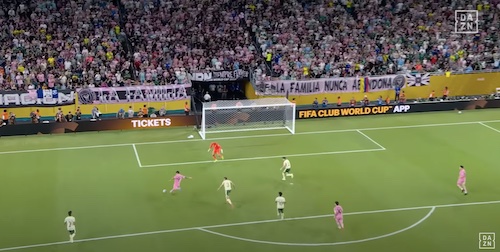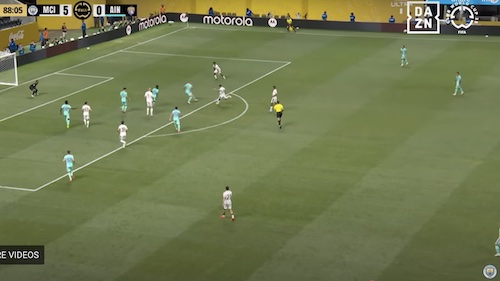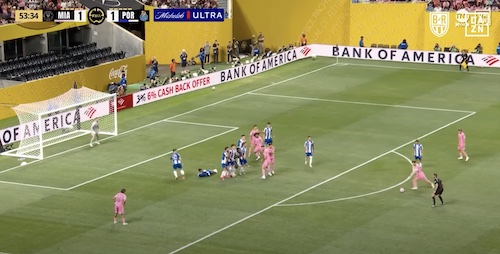| By Lawrence Ostlere
England midfielder Joe Cole joked this week that he has given up on filling in his World Cup wall-chart predictions, after getting them “all wrong” in the group stages. It’s understandable, as the tournament has thrown up plenty of surprises so far as smaller soccer nations progress. Only 6 countries have contested a World Cup final in the last 40 years, but the nature of results in South Africa suggests a changing of the guard may be imminent. Soccer has generally followed a pattern in the post-war period where countries like Brazil, Argentina, Germany and Italy have consistently enjoyed success with very few exceptions. Likewise, England, Holland and France can be seen as the next tier down, countries that are always dangerous and bring top players to every tournament. In 2006, two of soccer’s heavyweights, Italy and France, reached the final. Four years on, however, and both have crashed out in the group stages without mustering a win between them, after six matches and six uninspiring performances. So what has gone wrong, and is it a glimpse into the future of international soccer? For France it is a humiliating end to coach Raymond Domenech’s turbulent reign. A poor qualifying campaign left the 1998 hosts and winners needing a playoff to reach South Africa, won infamously thanks to Thierry Henry’s left hand. The pressure on Domenech following this struggle to reach South Africa forced him to set a resignation date for after the World Cup, with Laurent Blanc named to replace him, a move that probably helped damage any slither of respect Domenech commanded. His bemusing decision to omit Karim Benzema and Samir Nasri from the squad brought criticism from the French media, so it is perhaps not surprising that the French players went on strike from his authority. However, the players must also shoulder some of the blame. Before the tournament, several stars had been embarrassingly embroiled in a prostitution network scandal. Last week, Nicolas Anelka was sent home after refusing to train for his coach, whilst Patrice Evra was involved in a spat with a team physio. The chaos surrounding the team has led to the bizarre move of President Sarkozy arranging a meeting with Thierry Henry to discuss the team’s failure. For Italy, the story has been less controversial. However, they have suffered an even greater fall, from 2006 World Cup champions to 2010 Group F losers, below even New Zealand. There has been a failure to maintain the qualities of the victorious team of four years ago as age has caught up with many of their main stars, as their dismal efforts in the Confederations Cup last year showed, suffering loss to Egypt and destruction by Brazil. Key players like Fabio Cannavaro, (player of the World Cup in Germany), Andrea Pirlo (man of the match in the final) and Genarro Gattuso are no longer good enough, and although there were high hopes for a new generation, the likes of Claudio Marchisio and Riccardo Montolivio have not yet shown anything like World Cup winning quality. With Germany due to play England on Sunday there is about to be another European giant crashing out of the competition. But is this a glimpse into the future, or merely a blip? Italy are realistically just in a transition phase, where the older generation are no longer good enough, but the younger players have not had the chance to grow into their roles. France will have a new coach in Laurent Blanc to replace the much disliked Domenech and with the talent that the French squad possess, we can expect to see them back again. The old guard is not down and out, but it is down, for now at least. Meanwhile this creates opportunity for smaller nations to make a big impact. The six African teams have struggled despite their huge backing and now find themselves all out, bar Ghana. The Ghanaians have the support of a continent and have been fortunate with the draw, which gives them an excellent chance to reach the semi-finals, but Africa must still be disappointed with the performance of its other nations. Whilst South Korea and Japan have exceeded expectations, it is the lesser South American sides like Paraguay, Uruguay and in particular Chile that have really showed attacking intent and quality, and might just upset the balance of power. Unfortunately for Chile, however, the draw has been less kind, and they face Brazil in order to progress to the quarter finals. Whoever it may be, the World Cup has shown that the old guard is down, for now at least, and an opportunity is there to be taken. Lawrence Ostlere is a freelance writer and can be reached at: lawrence.ostlere@hotmail.co.uk |
Your Soccer Resource Center














